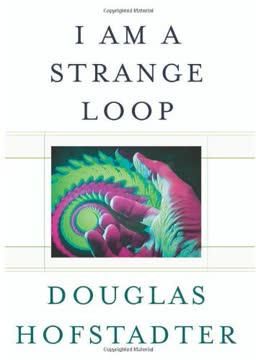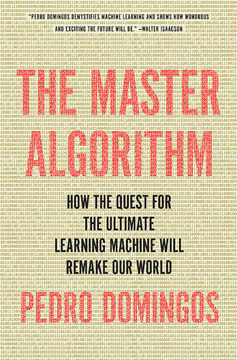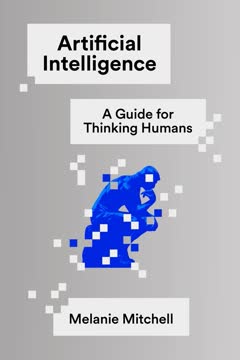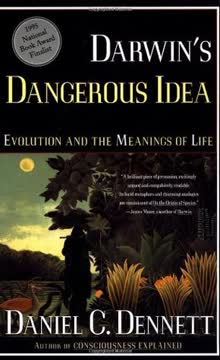Key Takeaways
1. Thinking tools are essential for tackling complex philosophical problems
"You can't do much carpentry with your bare hands and you can't do much thinking with your bare brain."
Toolbox for thought. Philosophy and science require specialized tools to navigate complex ideas. These tools include concepts, analogies, thought experiments, and logical frameworks that help us analyze and understand difficult problems. By employing these tools, we can break down complex issues into manageable parts and explore them systematically.
Examples of thinking tools:
- Occam's Razor: Prefer simpler explanations
- Reductio ad absurdum: Disprove ideas by showing their logical consequences are absurd
- Thought experiments: Imagine hypothetical scenarios to test ideas
- Conceptual analysis: Break down complex concepts into simpler components
These tools allow us to extend our cognitive abilities, much like physical tools extend our physical capabilities. They help us avoid common pitfalls in reasoning and provide structured approaches to tackling philosophical questions.
2. Evolution by natural selection is a universal acid that transforms our understanding of life and mind
"Darwin's idea of evolution by natural selection is, in my opinion, the single best idea that anybody has ever had."
Transformative power. Darwin's theory of evolution by natural selection is a powerful explanatory framework that applies not just to biology, but to many aspects of the universe, including the development of minds and culture. It provides a naturalistic explanation for the complexity and apparent design we see in living things, without resorting to supernatural causes.
Key aspects of evolutionary thinking:
- Variation: Differences among individuals in a population
- Heredity: Traits passed from parents to offspring
- Selection: Differential survival and reproduction based on traits
- Accumulation: Gradual changes over many generations
This framework can be applied to understanding the development of complex cognitive abilities, the emergence of consciousness, and even the evolution of ideas and cultural practices. It challenges traditional notions of purpose and design in nature, offering a bottom-up explanation for the emergence of complexity.
3. Consciousness is not a mysterious phenomenon, but a product of physical processes
"Consciousness is more like fame than television: fame in the brain, cerebral celebrity, a way in which some contents come to be more influential and memorable than the competition."
Demystifying consciousness. Rather than being a mysterious, non-physical phenomenon, consciousness can be understood as an emergent property of complex information processing in the brain. This view challenges dualistic notions of mind and body, suggesting that consciousness arises from the interactions of neural processes.
Key aspects of this view of consciousness:
- Multiple drafts: Consciousness is not a single, unified stream but multiple parallel processes
- Cerebral celebrity: Some mental contents gain more influence and accessibility than others
- Heterophenomenology: Studying consciousness through third-person scientific methods
- Qualia as dispositions: Subjective experiences are patterns of brain activity with functional roles
This perspective allows us to investigate consciousness scientifically, without resorting to mystical explanations. It suggests that as we better understand brain function, we'll gain deeper insights into the nature of conscious experience.
4. Free will is compatible with determinism and crucial for moral responsibility
"What we all want, and should want, is that when we act, we act based on good information about the best options available to us."
Compatibilist view. Free will is not about being free from causal influences, but about having the capacity to make decisions based on reasons and to act on those decisions. This view reconciles the apparent conflict between determinism and moral responsibility.
Key aspects of compatibilist free will:
- Reasons-responsiveness: The ability to act based on rational deliberation
- Absence of coercion: Freedom from external constraints on decision-making
- Moral responsibility: Accountability for one's actions based on the ability to choose
- Practical unpredictability: The impossibility of perfectly predicting human behavior
This understanding of free will preserves our intuitions about moral responsibility while acknowledging the causal nature of the universe. It focuses on the importance of our decision-making processes rather than on metaphysical notions of uncaused causes.
5. The intentional stance is a powerful tool for understanding behavior
"The intentional stance is the strategy of interpreting the behavior of an entity (person, animal, artifact, or whatever) by treating it as if it were a rational agent who governed its 'choice' of 'action' by a 'consideration' of its 'beliefs' and 'desires.'"
Predictive power. The intentional stance is a strategy for understanding and predicting behavior by attributing beliefs, desires, and rationality to entities. This approach is often more effective and efficient than trying to predict behavior based on physical or design-level details.
Applications of the intentional stance:
- Human psychology: Understanding and predicting human behavior
- Animal behavior: Interpreting complex animal behaviors
- Artificial intelligence: Designing and interacting with AI systems
- Social interactions: Navigating complex social situations
While the intentional stance doesn't imply that entities actually have beliefs or desires in a literal sense, it provides a powerful framework for understanding complex systems. It's particularly useful when dealing with systems too complex to analyze at lower levels of description.
6. Memes are cultural replicators that evolve like genes
"Memes are informational symbionts, and like the mutualist symbionts by the trillions that also inhabit us, we couldn't live without them, but that doesn't mean they are all our friends."
Cultural evolution. Memes are units of cultural information that replicate and evolve in ways analogous to genes. This concept provides a framework for understanding cultural change and the spread of ideas.
Key aspects of memetic theory:
- Replication: Ideas spread from mind to mind
- Variation: Ideas change as they are transmitted
- Selection: Some ideas survive and spread more than others
- Cultural evolution: Cumulative changes in ideas and practices over time
Memes help explain the dynamics of cultural change, including the rapid spread of some ideas and the persistence of others. They also highlight the complex relationship between individual minds and cultural information, suggesting that our thoughts and beliefs are shaped by the "ecology" of memes in our environment.
7. Language and meaning are rooted in physical and social contexts
"Words have meanings, not 'intrinsic' meanings somehow glued into their structures, but meanings that are derived from the myriad of interactions with the world in which they have participated."
Contextual meaning. Language and meaning are not abstract, disconnected systems but are deeply rooted in our physical and social experiences. This view challenges the idea of language as a purely symbolic system and emphasizes its connection to embodied experience and social interaction.
Key aspects of this view of language:
- Embodied cognition: Meaning is grounded in physical experiences
- Social context: Language derives meaning from its use in social interactions
- Pragmatics: The importance of context and intention in understanding meaning
- Evolutionary development: Language as an evolved capacity shaped by our environment
This perspective encourages us to think about language not as a static system of symbols, but as a dynamic, context-dependent tool for communication and thought. It suggests that to fully understand meaning, we need to consider the broader physical and social contexts in which language is used.
8. Intuition pumps can be both illuminating and misleading in philosophical reasoning
"Like a good thought experiment, its point is immediately evident even to the uninitiated. In fact it is a bad thought experiment, an intuition pump that actually encourages us to misunderstand its premises!"
Double-edged tools. Intuition pumps are thought experiments designed to elicit specific intuitions about philosophical problems. While they can be powerful tools for exploring ideas, they can also mislead us by oversimplifying complex issues or exploiting cognitive biases.
Guidelines for using intuition pumps:
- Examine assumptions: Identify and question hidden premises
- Consider variations: Explore how changing details affects intuitions
- Look for disanalogies: Identify ways the thought experiment might not apply to reality
- Seek empirical evidence: Use scientific findings to inform philosophical reasoning
By approaching intuition pumps critically, we can harness their power while avoiding their pitfalls. This balanced approach allows us to use them as tools for exploration rather than as definitive arguments.
9. The scientific image and manifest image of reality can be reconciled through careful analysis
"The task of figuring out how to put all the familiar things in our manifest image into registration with all the relatively unfamiliar things of the scientific image is not a job that scientists are especially well equipped to do."
Bridging perspectives. The scientific image (our best scientific theories about reality) and the manifest image (our everyday understanding of the world) often seem to conflict. However, careful philosophical analysis can help reconcile these perspectives, showing how our commonsense understanding relates to scientific descriptions.
Strategies for reconciliation:
- Conceptual analysis: Clarifying the meanings of key terms in both images
- Reductive explanation: Showing how manifest phenomena arise from scientific processes
- Eliminativism: Revising or discarding problematic concepts from the manifest image
- Pluralism: Recognizing the value and limitations of different perspectives
This reconciliation is crucial for developing a coherent worldview that integrates scientific knowledge with our lived experience. It allows us to maintain the richness of our everyday understanding while embracing the insights of science.
</instructions>
Last updated:
FAQ
What's Intuition Pumps and Other Tools for Thinking about?
- Exploration of Thinking Tools: The book presents a collection of cognitive tools, known as "intuition pumps," to help readers tackle complex philosophical questions and improve reasoning skills.
- Philosophical Focus: It covers topics like meaning, consciousness, evolution, and free will, using these tools to clarify and challenge common assumptions.
- Accessible Philosophy: Dennett aims to make philosophical concepts accessible to a wider audience, highlighting the importance of clear thinking in understanding profound issues.
Why should I read Intuition Pumps and Other Tools for Thinking?
- Enhance Critical Thinking: The book provides practical tools to improve critical thinking and reasoning about difficult problems.
- Engaging Thought Experiments: Dennett uses thought experiments and real-world examples to illustrate complex ideas, making them relatable and easier to grasp.
- Philosophical Insight: Readers gain insights into fundamental philosophical questions, deepening their understanding of personal and others' beliefs.
What are the key takeaways of Intuition Pumps and Other Tools for Thinking?
- Diverse Thinking Tools: Introduces tools like Rapoport’s Rules and Occam’s Razor, applicable across contexts to enhance reasoning.
- Understanding Intentionality: Explores original vs. derived intentionality and its impact on beliefs and meanings.
- Embracing Mistakes: Emphasizes that mistakes are crucial for learning, encouraging readers to view errors as growth opportunities.
What are the best quotes from Intuition Pumps and Other Tools for Thinking and what do they mean?
- “You can’t do much carpentry with your bare hands and you can’t do much thinking with your bare brain.”: Highlights the necessity of using tools to enhance capabilities in both carpentry and thinking.
- “Our errors are surely not such awfully solemn things.”: Suggests that mistakes should be embraced as essential to learning and progress.
- “The aim of philosophy, abstractly formulated, is to understand how things in the broadest possible sense of the term hang together in the broadest possible sense of the term.”: Encapsulates philosophy's goal to seek coherence and understanding in complex ideas.
What is an intuition pump in Intuition Pumps and Other Tools for Thinking?
- Definition: An intuition pump is a thought experiment designed to provoke intuitive responses and insights about philosophical issues.
- Purpose: Simplifies complex ideas into relatable scenarios, allowing exploration without technical jargon.
- Examples: Dennett provides various examples to challenge assumptions and stimulate critical thinking.
How does Intuition Pumps and Other Tools for Thinking address the concept of meaning?
- Manifest vs. Scientific Image: Discusses reconciling how we perceive the world with scientific explanations.
- Folk Psychology: Explores interpreting beliefs and desires of others, highlighting its role in understanding meaning and intentionality.
- Intentional Stance: Introduces predicting behavior by treating entities as rational agents, aiding in grasping meanings behind actions.
What are Rapoport’s Rules in Intuition Pumps and Other Tools for Thinking?
- Charitable Criticism: Advocates for fair and respectful critique, emphasizing understanding before rebuttal.
- Four Key Steps: Re-express opponent’s position, list agreements, mention learned points, then provide criticism.
- Benefits: Fosters constructive dialogue, encouraging mutual understanding and respect.
How does Intuition Pumps and Other Tools for Thinking explain the relationship between the mind and the brain?
- Competence without Comprehension: Argues cognitive processes can occur without conscious understanding, suggesting brain operates on competence.
- Homuncular Functionalism: Discusses breaking down mental processes into simpler components for better understanding.
- No Wonder Tissue: Emphasizes explaining cognitive functions through biological processes, avoiding assumptions of miraculous properties.
What is the significance of Occam’s Razor in Intuition Pumps and Other Tools for Thinking?
- Principle of Simplicity: Suggests not multiplying entities beyond necessity, advocating for simpler explanations.
- Application in Philosophy: Encourages seeking simplest solution that explains a phenomenon adequately.
- Caution Against Overuse: Warns against dismissing valid complexities by overapplying Occam’s Razor.
How does Intuition Pumps and Other Tools for Thinking approach the topic of free will?
- Exploration of Determinism: Examines tension between free will and determinism, questioning its existence in a deterministic universe.
- Thought Experiments: Uses thought experiments to challenge intuitions about free will, encouraging reconsideration of assumptions.
- Practical Implications: Discusses implications on moral responsibility and behavior, suggesting understanding free will is crucial for ethics.
How does Dennett define the self in Intuition Pumps and Other Tools for Thinking?
- Center of Narrative Gravity: Proposes self as a narrative center, shaped by stories and experiences.
- Dynamic and Fluid: Emphasizes self as a collection of evolving memories, intentions, and narratives.
- Implications for Identity: Suggests personal identity is complex and interconnected, not a singular, unchanging entity.
What is heterophenomenology, and why is it important in Intuition Pumps and Other Tools for Thinking?
- Definition: Heterophenomenology is a method for studying consciousness from a third-person perspective, focusing on beliefs and reports of experiences.
- Objective Study: Allows gathering data on consciousness while respecting subjective experiences, bridging objective science and personal insight.
- Significance: Challenges traditional introspective methods, advocating for empirical and collaborative understanding of consciousness.
Review Summary
Intuition Pumps And Other Tools for Thinking receives mixed reviews. Some praise Dennett's clear writing and thought-provoking ideas, while others find it repetitive and self-referential. The book is seen as a collection of philosophical tools and thought experiments, covering topics like consciousness, free will, and evolution. Readers appreciate Dennett's accessible approach to complex subjects, but some criticize his condescending tone and lack of focus. Overall, it's considered a valuable resource for those interested in philosophical thinking, despite its flaws.
Similar Books










Download PDF
Download EPUB
.epub digital book format is ideal for reading ebooks on phones, tablets, and e-readers.








